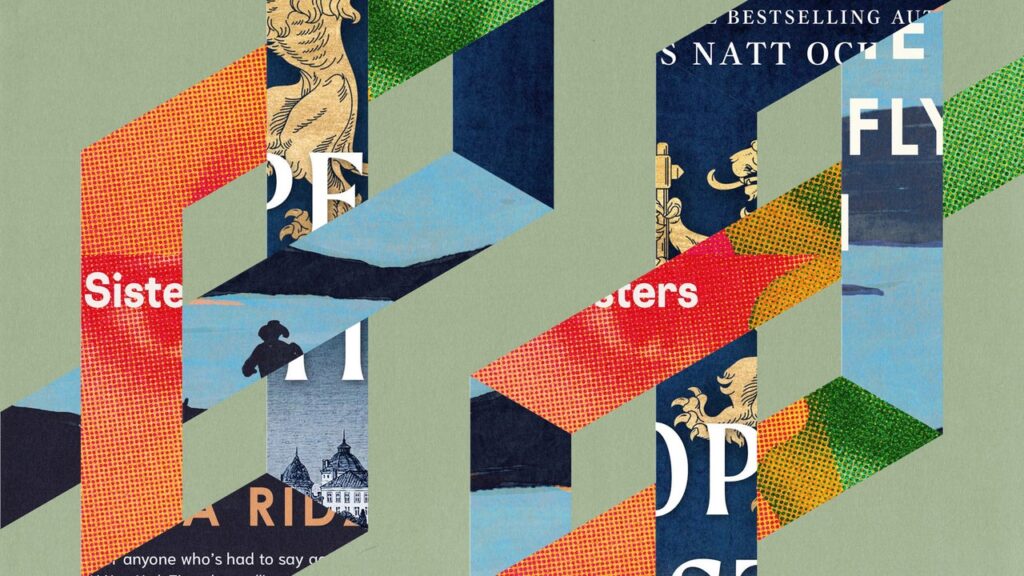Swedish, the native language of the novelist Fredrik Backman, is spoken by only about ten million people, so the writer feels fortunate that all his books—including the best-sellers “A Man Called Ove,” “Anxious People,” and the “Beartown” trilogy—have been translated into English. Backman relishes the opportunity to serve as an ambassador for contemporary Swedish literature, and for the country’s broader literary tradition. From Nordic fairy tales and Viking folk stories to Astrid Lindgren’s “Pippi Longstocking” and Scandi-noir, “everything is character-driven,” he said. “They’re all about people’s relationships and emotions and growth.” Backman, whose latest book, “My Friends,” comes out in May, joined us recently to discuss four other Swedish novels that will appear in English this year, works that, like his own, are deeply rooted in Scandinavia’s storytelling tradition. His comments have been edited and condensed.
The Colony
by Annika Norlin
At its core, this book is a study of group dynamics. The main character, Emelie, is burned out from life in the big city, so she moves to the forests of northern Sweden. There she finds a small group of people living together, led by a charismatic woman named Sara. But Emelie’s arrival disrupts everyone’s role, and from this tension emerges an extraordinary story about trying to find your place in modern society.
Norlin’s characters are all so real; she knows every feeling of every person, which is incredibly hard to do and requires a lot of investment. She also has a wonderfully unpredictable way of writing. It’s both journalistic and poetic, and she moves back and forth between the registers in a way that few writers can. She leans toward the reportorial, but there are beautiful sentences hidden throughout, and when you find one it just knocks you over.
When the Cranes Fly South
by Lisa Ridzén
It’s a tough thing to age, to have your body give up on you, and this deeply moving story contends with that, and with grief and death. It follows an elderly man, Bo, who lives alone with his dog after his wife, who has Alzheimer’s, is moved to an assisted-living facility. As Bo begins to contemplate what his life has amounted to, he attempts to reconcile with his adult son, with whom he has had a fraught relationship.
The book is a really tender depiction of a father-son relationship and a brutally honest exploration of what it looks like to care for someone who is old and dying. It’s heartfelt and funny without being over the top, and there are no caricatures. It’s one of those “you’ll laugh, you’ll cry, you’ll want to buy twenty copies and give them to everyone you love” books.
The Sisters
by Jonas Hassen Khemiri
In Scandinavia, Khemiri is easily one of the most respected and decorated authors of my generation. This book, his seventh, is a classic story about sibling rivalry, and it follows three chaotic and loving sisters over a period of thirty years. They have a Tunisian mother and a Swedish father, and the story opens with them living in Stockholm as young adults. One becomes an actress, one flees to Tunisia and falls in love with a woman, and one moves to New York, where she suddenly disappears.
Khemiri, who is also of Swedish and Tunisian descent, lives and teaches in New York; he’s a true citizen of the world, and he captures that experience in an exceptionally vivid way. This is one of the best novels I’ve ever read about the complexities of mixed heritage. At nearly seven hundred pages, the book is quite long, but Khemiri’s language is propulsive—it possesses a flow and a tempo that makes you forget that you’re reading.
Hope and Destiny
by Niklas Natt och Dag
This grand piece of historical fiction, set in the thirteenth century, has everything you could wish for in a story: kings and rebels, betrayals and murder, a heartbreaking romance that seems destined for destruction. The book is broadly about how Sweden became Sweden, through the power struggles of early Scandinavia and how they shaped our entire culture and way of living. But, at its heart, it’s a magnificent portrayal of people: rulers trying to hold a kingdom together, insurgents fighting to win it over, nobles attempting to negotiate their children’s future, women rushing up to defend their homes—all with very clear motivations and intentions.
The book is extremely well-researched, but you never feel as though you’re drowning in facts, and the narrative feels super relevant to the world today, posing questions like: What is a country, and who controls it? How much of a country can be governed by law and how much must be governed by force? As compared with the U.S. and the U.K., Scandinavia hasn’t produced much in the way of historical fiction. Natt och Dag, by blending this genre with our joyous storytelling tradition, has helped open new doors, and I anticipate that a lot more Scandinavian historical fiction will emerge in the next couple of years.
Premium IPTV Experience with line4k
Experience the ultimate entertainment with our premium IPTV service. Watch your favorite channels, movies, and sports events in stunning 4K quality. Enjoy seamless streaming with zero buffering and access to over 10,000+ channels worldwide.

















